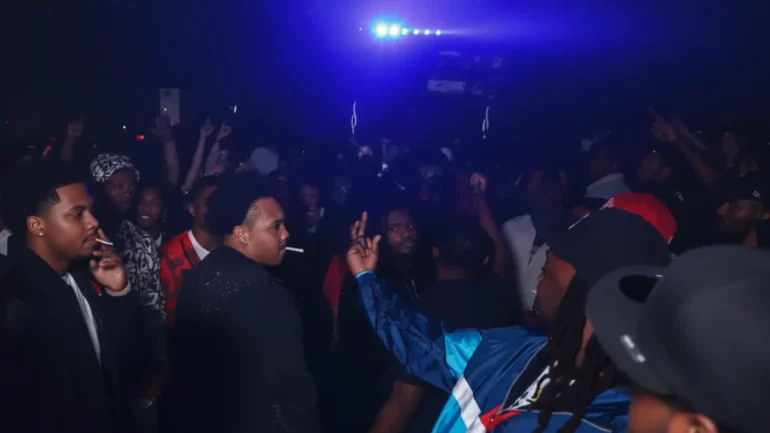Hip-Hop star Drake and Kick streamer Adin Ross are now facing a second class-action lawsuit accusing them of promoting an illegal online gambling site, as pressure builds on crypto casino Stake.us. The newest filing, submitted in New Mexico on October 29, mirrors a lawsuit filed just days earlier in Missouri. Both suits claim Stake.us is marketed as a “social casino” while functioning like a real-money gambling operation, and that Drake and Ross helped advertise it to young fans without being upfront about the risks.
The Missouri lawsuit, filed October 27 by resident Justin Killham, lays out how Stake.us allegedly gets around U.S. gambling rules. According to the complaint, customers buy “Gold Coins” bundled with “Stake Cash,” the latter of which can actually be wagered on casino-style games and turned into cryptocurrency. Killham’s attorneys say that makes it real gambling in states where it remains illegal. The lawsuit then zeroes in on Drake and Ross, accusing them of promoting Stake as harmless entertainment while raking in huge payouts from the company.
Drake — who reportedly signed a nine-figure partnership with Stake in 2022 — has streamed major bets to global audiences, including a $1.25 million Bitcoin gamble during the 2022 Super Bowl and a massive cricket wager in 2025. Ross, 24, has streamed long gambling sessions on Kick, sometimes alongside Drake. The suit claims both men regularly used casino-provided funds to make it look like they were risking their own money, calling it a marketing trick designed to attract young viewers.
The New Mexico case takes the same position. Filed by two unnamed residents, it argues that Drake, Ross, and Stake profited while vulnerable users — including minors — lost money. The filing notes that Stake handled an estimated $219 billion in cryptocurrency transactions last year alone. Critics say this popularity has come with almost no consumer protections.
Adding fuel to the fire, Drake publicly clashed with Stake co-owners Ed Craven and Bijan Tehrani back in August. During a Kick stream hosted by TrainwrecksTV, Drake called them “snakes,” accused them of blocking withdrawals, and said he was finished streaming on the platform. Ross, caught on camera hearing the news, said there would be no more collaborative streams. A joking plan for a charity boxing match never materialized.
Ross brushed off the lawsuit during his October 29 stream, calling it “bullsh*t” and encouraging viewers to read the court documents themselves. Fellow streamer xQc defended Drake as well, saying these sponsorship deals are common and insisting the lawsuit is more about publicity than law. Asmongold took a different angle, arguing that sports betting and gambling ads in general have become too normal for young audiences.
Drake has not responded publicly, and Stake.us hasn’t issued a formal statement. A similar lawsuit filed in California earlier this year was dismissed, though that hasn’t slowed the number of states taking action. California, Illinois, Alabama, Massachusetts, South Carolina, Minnesota, Missouri, and now New Mexico have all gone after sweepstakes-style casinos. California Governor Gavin Newsom even signed a bill banning them, citing addiction concerns.
Stake faced global criticism in August after French streamer Raphaël “Jean Pormanove” Graven died during a live stream marked by abuse. French authorities opened investigations into Kick’s moderation, and Drake offered to cover funeral costs.
Online reaction to the newest lawsuits swings between outrage, mockery, and defense. Some parents blame influencers for bringing gambling into feeds used by teenagers. Others say the lawsuits should target the platforms, not the celebrities paid to promote them. Early sentiment analysis shows a near-even divide.
Legal analysts say these cases could be hard to win — the California dismissal sets a precedent — but growing political attention could push new rules on influencer gambling, including clear disclosures and age restrictions.
For Drake, this threatens a brand that’s usually bulletproof. For Ross, it raises questions about Kick’s gambling-heavy streaming culture. For Stake, it could be a turning point. Real money is involved — and not just for winners.
Whether this becomes a landmark case or fades away could depend on what happens once Missouri officially launches legal sports betting on December 1. Until then, the lawsuits aren’t slowing down.







